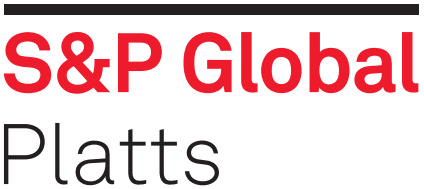
Germany-based steelmaker Thyssenkrupp will present a new steel business development strategy to its supervisory board in December in view of current losses and has already put its heavy steel plate business under review, CEO Martina Merz told reporters Thursday.
The move is part of a broader “transformation roadmap” now proceeding at the entire Thyssenkrupp Group due to a demand downturn in the European steel market and fundamental changes in the automotive sector, although the group does not foresee a long-term crisis emerging in the global economy, Merz said. The restructuring is expected to take two to three years, she said.
Internal preparations for an IPO for the company’s more lucrative elevators division are due to be completed by the end of the year, and a final decision on the form of the IPO should come in Q1 2020, Merz said.
The company is pursuing mergers and acquisitions for divisions or for the entity as a whole, she said. There is more than one potential partner currently in talks, including in the steel area, she said.
The macroeconomic factors, plus the European Commission’s prohibition of its planned steel division merger with Tata Steel Europe in May, have contributed to financial results at Thyssenkrupp Group which are “nothing to be happy about”, Chief Financial Officer Johannes Dietsch said.
The company made a net loss of Eur260 million ($288.22 million) for the 2018-19 fiscal year (October-September), compared with a loss of Eur12 million in the previous year, and a “significantly higher” net loss foreseen for 2019-20, which is set to be a “challenging” year with a lot of work to do, he said.
The group has decided not to pay dividends this year, and group-wide job losses beyond the 6,000 announced earlier this year “cannot be ruled out,” executive board member responsible for human resources, Oliver Burkhard, said, with 2,100 of the announced cuts already made. Thyssenkrupp was “removing bureaucracy,” starting at the top, he said.
Thyssenkrupp “will therefore not achieve the medium-term targets set in August 2018 in fiscal 2020/2021 as planned,” the company said.
‘Low bar’
The group is “setting a low bar for FY20” Jefferies International analyst Alan Spence said, noting the results had “a significantly stronger tone of accelerating restructuring and aggressive portfolio optimisation.”
Merz added that the company is already “well on track to bringing corporate costs to below Eur200 million,” from Eur306 million in the past year.
A major management reshuffle has resulted in a new executive board being put in place on October 1. New CEO Merz, just seven weeks in the role, will however leave the group in coming months, she said.
Thyssenkrupp is in a “very difficult” situation, possibly due to lack of focus, she told analysts.
“There has been a lack of accountability … and we are fixing this,” Merz said, adding that the company had suffered in recent years from having “some big egos” at the top, and stressing that investment decisions can be expected to be “more rational” in future.
Despite the “difficult economic environment,” group order intake and sales nonetheless both rose to Eur42 billion in fiscal 2018/2019, up 1% year on year, the company said. The capital goods businesses made a major contribution, with orders in the elevators division hitting a new high, while the materials businesses were “slowed by the increasingly weaker global economy, the substantial slowdown in the automotive sector and continued high import pressure on steel.”
Adjusted EBIT at Eur802 million was 44% lower than a year previously, but in line with the company’s forecast adjusted in August 2019.
‘Far-reaching’ steel restructuring
Merz said the planned steel restructuring would involve “far-reaching measures,” including higher levels of investment in areas that are guaranteed to give a return.
“The steel cycle is at its lowest ebb,” she said.
She said the company would move its “production portfolio ever more to the higher-value end of the range … and turn the CO2 emissions challenge into an opportunity.”
The group is breaking new ground in emissions control, and it “achieved a world first by injecting hydrogen into a blast furnace,” she said.
Thyssenkrupp Steel Europe’s adjusted EBIT sank to Eur31 million in the year, from Eur687 million in the previous year, with a marked loss on heavy plate, as “drastically” higher iron ore costs combined with a significantly lower volume of sales to the automotive business, impacted by the new WLTP emissions test. The unit was hit by the Rhine’s historic low tide, it said.
The group’s fiscal year Q4 shipments to the automotive industry fell to 10.5 million mt from 11.3 million mt a year previously, said Dietsch.
“The complicated situation with the automotive industry [is set to] prevail for the Q1 fiscal year … with limited visibility for after that,” he said.
In a brighter spot for Thyssenkrupp, it inaugurated a new hot-dipped galvanizing line in Dortmund at the end of October in a Eur250 million investment, Merz said.
For the fourth quarter of the fiscal year, the EBIT results were “weak,” down 57% from a year ago to Eur118 million, and 8% below consensus, Bank of America Merrill Lynch said.
The company “was still negatively impacted by the lower demand for car components in China, Western Europe and the US,” BofA Merrill Lynch research analyst Tom Gibney said. “The weak momentum in the auto industry also weighed on Material Services and Steel Europe.”




